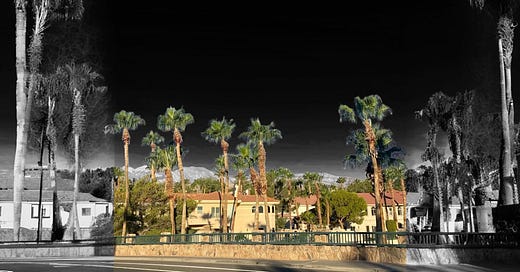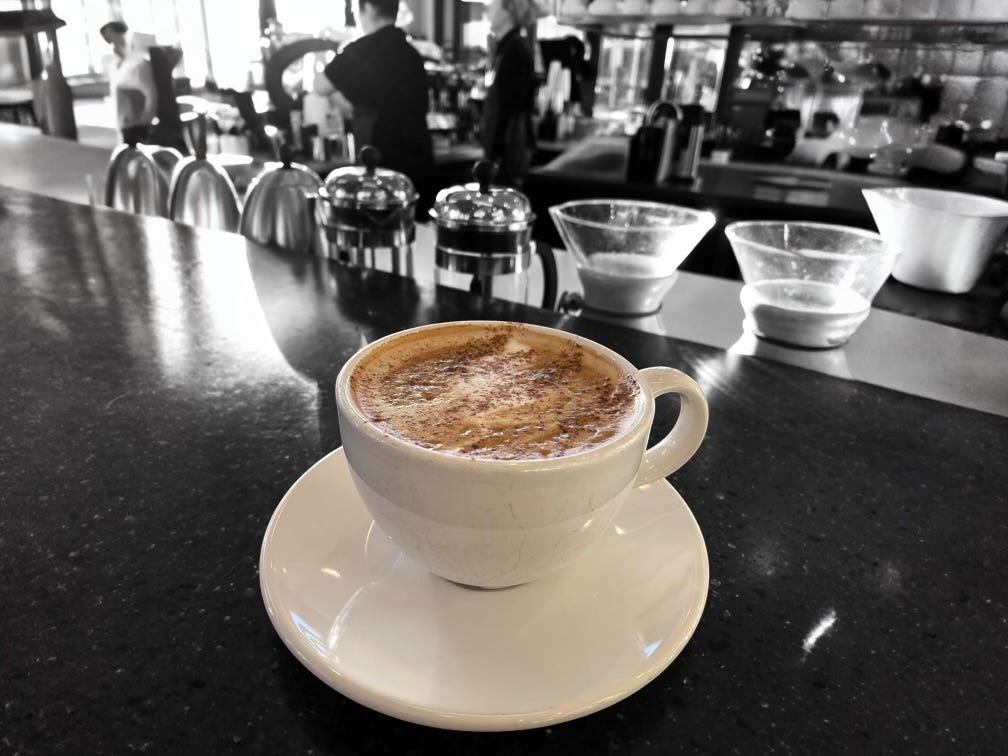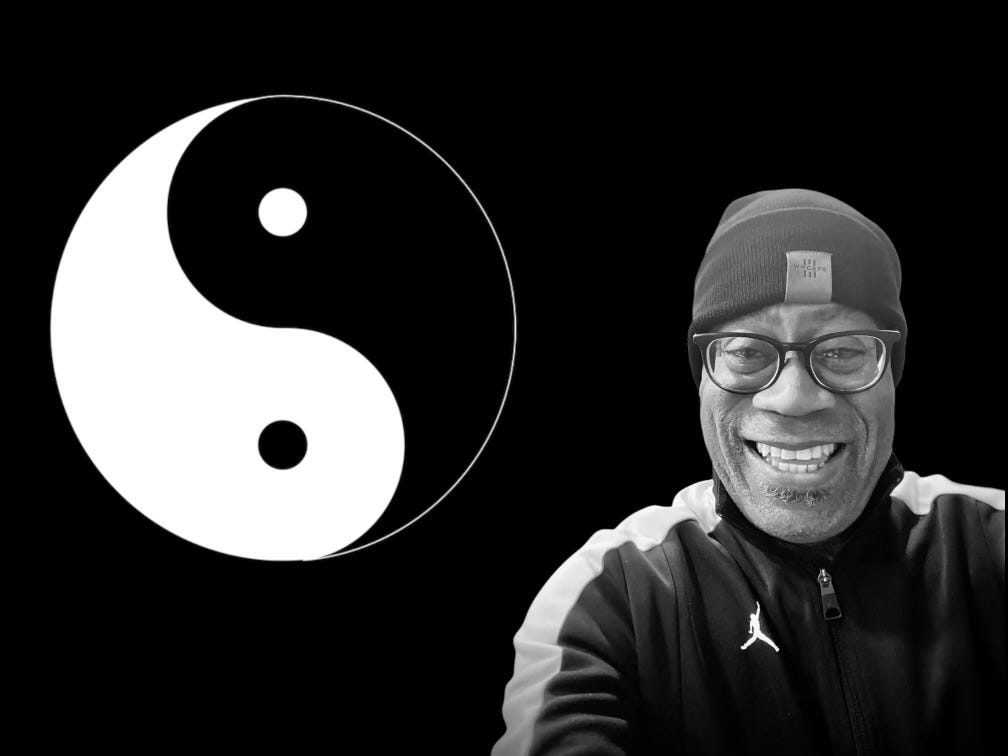In 2019, I was forced to confront uncertainty not as an abstract concept, but as a raw and immediate reality.
For several months, I was unhoused in San Diego, navigating a world that suddenly felt more unpredictable and indifferent than ever before. The questions I faced each day weren’t intellectual musings — they were practical and existential.
Where would I sleep? Could I stretch a few dollars into a meal? What if I got sick? What if I never found stability again?
If you had told me then that uncertainty was something to be embraced, a teacher rather than an enemy, I would have laughed bitterly. To be uncertain, in my mind, was to be weak, to be at the mercy of forces beyond my control. I longed for structure, for predictability, for some assurance that my life would stabilize.
Yet now, looking back, I realize that those months were my greatest teacher. They stripped away my illusions of certainty and control. They forced me into the most fundamental lesson of both Taoism and Confucianism: that life is always in motion, that the wise do not resist change but move with it.
As Laozi teaches in the Tao Te Ching:
When nothing is done, nothing is left undone.
Meaning, when we cease our frantic efforts to impose control on the world, we align ourselves with the natural flow of things. And when we align with the flow, life unfolds more effortlessly than if we had tried to force it into submission.
Reading Maggie Jackson’s thought-provoking book “Uncertain: The Wisdom and Wonder of Being Unsure” years later struck me as a quiet revelation. It is a book that argues against our modern obsession with certainty, with always having the right answers, the right plans, the right strategies.
She reminds us that true wisdom lies not in rigid control, but in adaptability. In that sense, Jackson’s book feels profoundly Taoist, even if she doesn’t frame it that way.
The Modern Mind and the Need for Certainty
Western society has conditioned us to believe that certainty is the ultimate goal. We’re taught to seek clear answers, to plan our lives meticulously, to map out five-year strategies for success.
The self-help industry thrives on this obsession, offering endless formulas for financial stability, career growth, and personal fulfillment.
The underlying message? If you’re uncertain, you’re failing. If you don’t have a clear plan, you’re lost.
Confucius, however, would disagree. In the Analects, he tells us:
“The superior person is not rigid. They are like water, taking the shape of what is needed in the moment.”
Confucius understood that wisdom is not about having preordained answers but about cultivating adaptability, self-discipline, and a keen awareness of the present moment. A person who insists on certainty in an ever-changing world will find themselves frustrated, anxious, and ultimately ineffective.
Taoism, too, warns against the dangers of clinging to fixed ideas. The moment we assume we know something with absolute certainty, we close ourselves off from growth. Laozi teaches that the wise are those who remain open, who embrace not-knowing, who recognize that flexibility is strength.
Jackson’s book reinforces this idea, illustrating how the greatest leaders, innovators, and thinkers do not operate from a place of rigid certainty. Instead, they cultivate epistemic humility—the ability to admit what they don’t know, to stay open to possibility, to let new information shape their understanding rather than clinging to old beliefs.
The Political and Economic Uncertainty of Today
Now, as we navigate one of the most uncertain economic and political climates in modern history, I find myself returning to the lessons of Taoism, Confucianism, and Jackson’s Uncertain.
Inflation is rising. Political divisions are deepening. The very nature of work is shifting under the weight of automation and AI. If there was ever a time for certainty, it is now—or so we tell ourselves.
But let’s step back. What if our search for certainty is actually making us more vulnerable?
Jackson argues that the more we demand certainty—politically, economically, technologically—the more we set ourselves up for disappointment and manipulation. The world doesn’t operate on rigid plans. Politicians promise absolute answers, financial analysts offer seemingly airtight predictions, but history shows that life rarely unfolds as expected.
Confucius reminds us:
“The wise person does not chase certainty, but seeks understanding.”
Rather than seeking to impose control over the unpredictable, we should cultivate resilience. Rather than demanding fixed answers, we should focus on the art of adapting to new circumstances.
Taoist Lessons for Navigating Uncertainty
So, how do we navigate these chaotic times without being consumed by fear? How do we embrace uncertainty without feeling lost? Taoism and Confucianism offer profound insights.
1️⃣ Embrace Flow Over Force
The Taoist concept of wu wei (effortless action) teaches that trying to force solutions often leads to resistance, while moving with the natural current of life leads to better outcomes. This doesn’t mean passivity—it means learning when to act and when to let go. Trying to control every economic or political event is futile. Instead, focus on what you can control: your mindset, your adaptability, your daily actions.
2️⃣ Stop Overthinking—Act Instead
Jackson’s book reminds us that being overly cerebral in times of uncertainty doesn’t necessarily lead to better decisions—it often leads to paralysis. Taoism teaches that doing often reveals more than thinking alone.
As the Taoist philosopher Zhuangzi puts it:
A path is made by walking it.
If you don’t know your next career move, take small steps rather than obsessing over the perfect strategy. If politics make you anxious, engage meaningfully instead of doom-scrolling.
3️⃣ Practice Ritual to Cultivate Stability
Confucianism teaches that when the world feels chaotic, we should return to ritual. Rituals—whether personal or societal—create stability in times of flux. They remind us of our values and offer structure even when everything else feels uncertain.
In practical terms, this could mean maintaining a morning routine when life feels unpredictable, engaging in mindful practices, or even establishing rituals of kindness and community-building in an era of political division.
4️⃣ Let Go of the Illusion of Control
One of the greatest sources of anxiety is our illusion that we should be in control of everything. Jackson’s book makes it clear: the need for certainty is a form of fear. Taoism tells us to release this grip. To trust in the unfolding of life. To understand that our attachment to certainty is often the very thing that makes uncertainty painful.
Uncertainty as an Invitation
Jackson’s Uncertain challenged me in ways I didn’t expect. It forced me to confront my own lingering resistance to uncertainty, to see how even now, I sometimes mistake thinking about a problem for actually engaging with it. But more than that, it reminded me that uncertainty is not an obstacle. It is an invitation—to grow, to adapt, to let go of illusions that no longer serve us.
As I reflect on 2019, on the months I spent without a home, I see now that uncertainty didn’t break me—it shaped me. It taught me how to trust in the unknown, how to listen more deeply to what life was telling me. It forced me to step beyond rigid expectations and move with the unfolding of events, rather than against them.
Now, as we all face an uncertain future, I return to this wisdom. We cannot control everything. We do not need to have all the answers. But we can cultivate resilience, adaptability, and a willingness to embrace the unknown as part of life’s natural rhythm.
And that, more than any rigid plan or promise of certainty, is the key to navigating what comes next.
If you find my nomadic wisdom valuable in helping to set a positive tone for your day, would you be kind enough to consider joining as a paid member supporter.
You can also tip me some dirty chai latte love here if you feel so inclined.
Every bit counts as I strive to deliver high quality feature articles into your inbox on a daily basis. Never any paywalls, just my Taoist raw thoughts which are open to everyone on what it means to be human.
Your contributions are appreciated in support of my full time work and calling.
Much Love,
Diamond- Michael Scott — aka The Chocolate Taoist
PS: Here are a couple of other simple ways you can engage with us
Reshare your favorite takeaway on Substack NOTES
SHARE this article and publication








Thank you for sharing this important perspective. It will be an important meditation for me today.
It’s so so similar to my experience which exactly started in 2019…we are blessed people ❤️